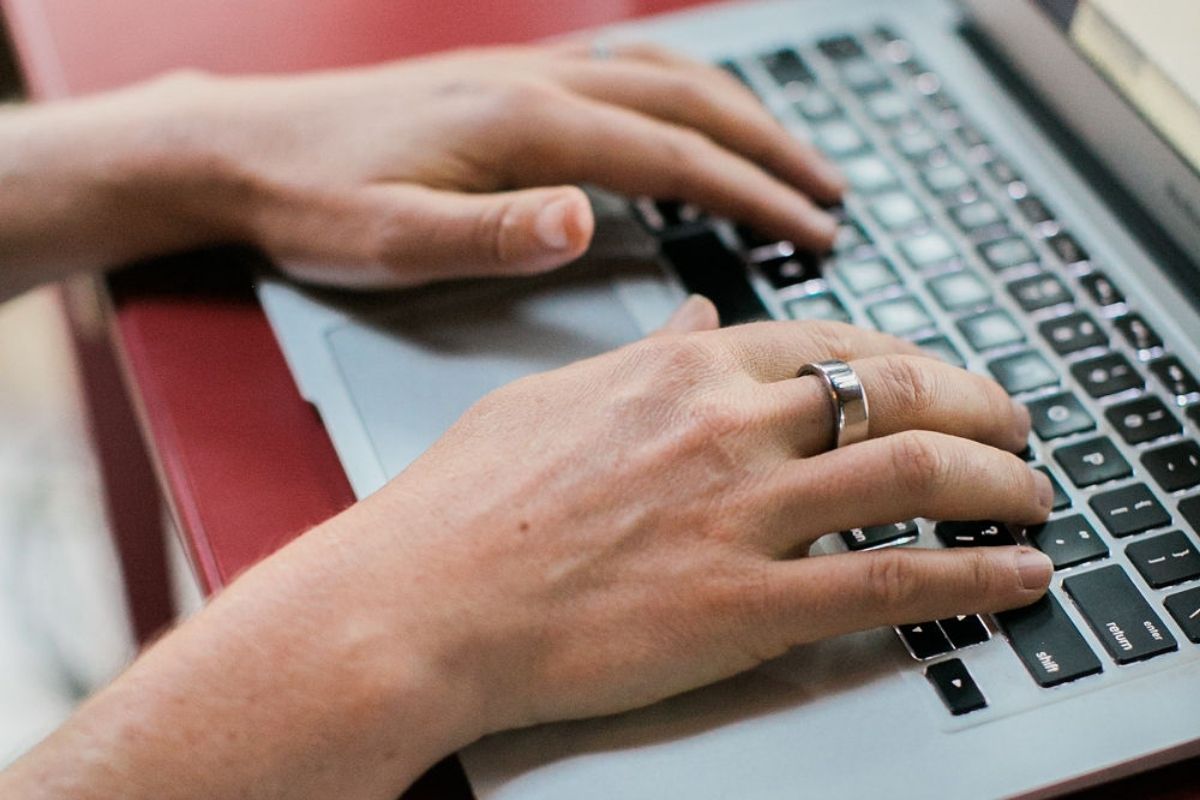[et_pb_section fb_built=”1″ _builder_version=”3.22″ global_colors_info=”{}”][et_pb_row _builder_version=”3.25″ background_size=”initial” background_position=”top_left” background_repeat=”repeat” global_colors_info=”{}”][et_pb_column type=”4_4″ _builder_version=”3.25″ custom_padding=”|||” global_colors_info=”{}” custom_padding__hover=”|||”][et_pb_text _builder_version=”3.27.4″ background_size=”initial” background_position=”top_left” background_repeat=”repeat” global_colors_info=”{}”]
Do you feel like you keep doing more but never do enough? If you answered yes, you may be caught in a cycle of toxic productivity. I have been contemplating this concept as it pertains to time and our desire to achieve self-imposed goals. How are we using our time? What drives our doing? How can we become more value-oriented as opposed to being compulsively driven?
In her powerful poem “Productivity Anxiety,” Rupi Kaur writes:
“i have this productivity anxiety
that everyone else is working harder than me
and i’m going to be left behind
cause i’m not working fast enough
long enough
and i’m wasting my time”
What I like about this excerpt from Kaur’s poem is that she shines a light on the behavior so many of us exhibit, even if subtle, we all suffer from some form of “not-enoughness” that keeps us stuck in this loop of auto-pilot “doing”. Thoughts that we aren’t doing enough can drive us to act in ways that don’t align with what really matters to us. We subconsciously keep ourselves busy by compulsively working so we might avoid dealing with issues in our current reality.
The paradox of productivity is that being productive helps us reach our goals, but also can derail us from our dreams. So the question is: When does productivity become toxic? It can look different for each of us, but feeling burned out or having feelings of low-self worth (ie: people pleasing or never feeling good enough and not living our truth/acting authentically) are really good indicators that productivity has turned toxic.
It’s understandable that we get caught in overdoing.
Your biology is doing its job when you are in drive. Evolutionarily, your brain is designed to shift into drive mode when it thinks you don’t have enough resources and need to compete for scarce goods (food, shelter, a mate). Modern day messaging (media, social media, the education system) floods our drive system with messages that we aren’t doing enough, don’t measure up or are falling behind.
The Creative Hopelessness of Toxic Productivity
In a recent post, I wrote about creative hopelessness–which is an ACT term for waking up to the reality that what we are doing (over and over again) isn’t working for us.
To unhook from toxic productivity, it helps to get a little hopeless about it. See that you are caught– and that your attempts to be “productive” are pulling you in directions you don’t want to head.
Use these three questions to explore creative hopelessness:
- When you feel like you aren’t doing enough, what do you do?
- How is this working for you?
- What are the costs?
Defuse from Your Doing Mind
The second step to unhooking from toxic productivity is STOP BELIEVING YOUR MIND! Your mind is producing thoughts all day long. These tend to hook folks into doing more. Once you begin to notice the unworkability of these thoughts, you can practice defusing them with this simple exercise:
- Name it: Label your toxic productivity thoughts. That is my “doing mind” wanting me to do more.
- Normalize it: it makes sense you would have this thought given the world we live in. Thank you, mind. It makes sense you would have that thought.
- Nevermind it: Is this thought working for me to build the life I want? If not, nevermind your mind!
Allow and Accept Productivity Anxiety
If you are used to doing things to quell feelings that you aren’t enough or to please people, stopping this cycle is likely to have a rebound effect. In psychology we call this “the extinction burst.” When you stop making yourself “feel better” by doing more, all the feelings that drove you to be productive will show up. Here are some common feelings that drive people to do too much.
Check which ones fit for you and expect them to show up!
- I feel guilty when I take time off
- I feel anxious when I am still
- I feel sad that I am not where I “should” be in life
- I feel scared that I am going to be left behind
- I feel alone and long for people to see my value
- I feel afraid there is not enough
- I feel shame that I am not enough
Practice acceptance of these feelings by allowing yourself to FEEL the guilt, shame, fear, anxiety when without acting to get rid of it. Notice your experience in your body, make space for it, open up and allow it. Check out this talk and meditation for more acceptance tips.
The Freedom to Choose
Ultimately, the goal is for you to choose your actions–not your unpleasant emotions or your mind’s narrative. The freedom to choose involves:
- Choosing your actions because they link to your values
- Following your intrinsic pull toward what you love
- Attuning to your body’s needs and responding
- Being present while you move in directions that matter to you
- Seeing yourself as a process not a product
For more on cultivating healthy striving, check out my Tuesday Talk + Meditations.
[/et_pb_text][/et_pb_column][/et_pb_row][/et_pb_section]

+ show Comments
- Hide Comments
add a comment